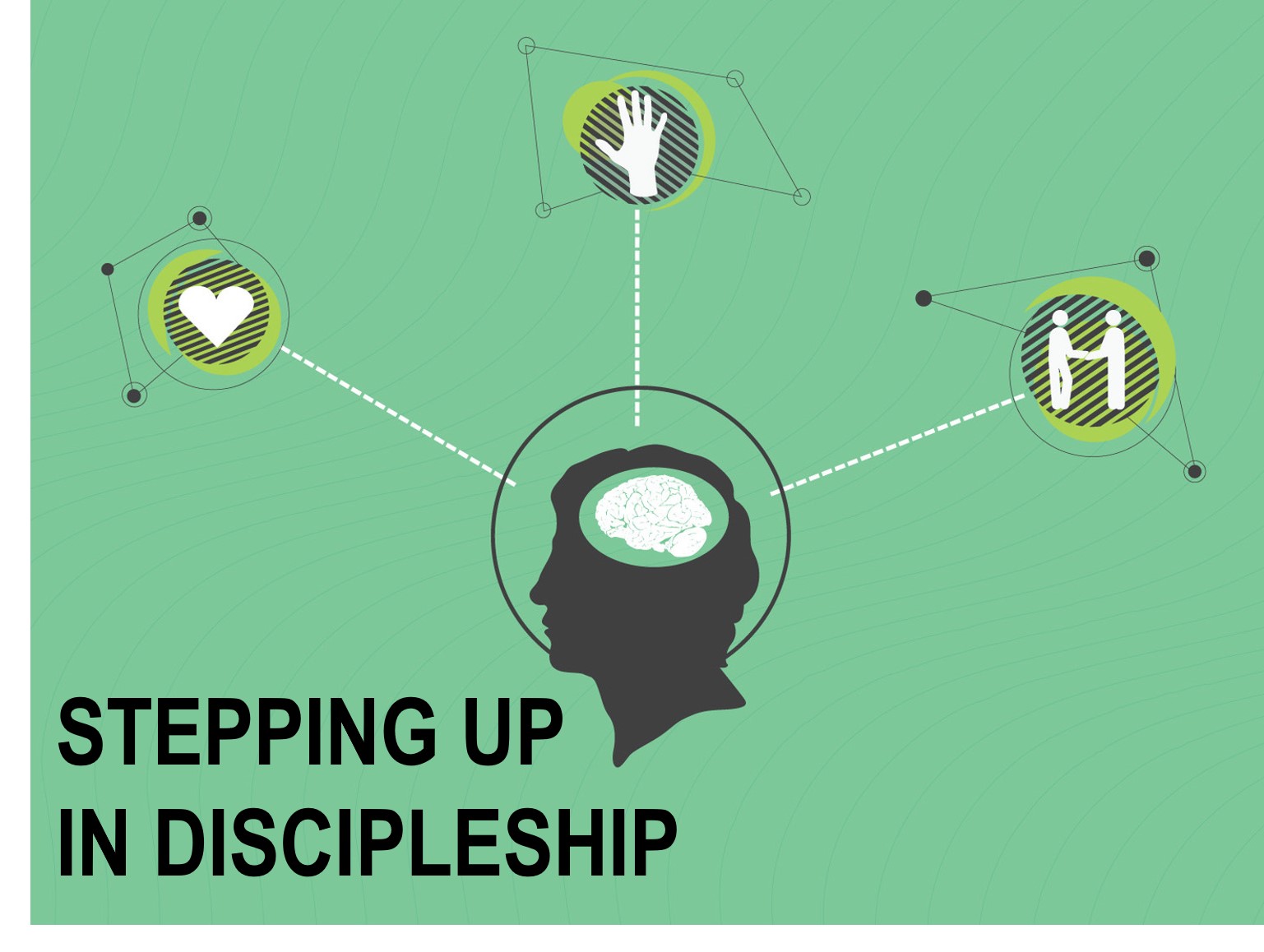Blog
This Jesus
Friday, December 27, 2019
This morning, all of us are aware that this Wednesday, December 25th, is Christmas, a day on which people across the world will celebrate the birth of Jesus Christ. Most of us also are aware that there is nothing in the Bible that says that Jesus’ birth should be celebrated on December 25th, or, indeed, on any other day. Nonetheless, it is true that at this time of year, more than any other, people are talking about Jesus.
What’s the big deal? What’s so important about a baby born in a stable in a backwater of the Roman Empire that we should still be talking about it 2000 years later? Certainly, the fact that Jesus was born of a virgin is impressive, but if that were the most noteworthy thing that Jesus ever did, He would be nothing more than an obscure historical footnote. This morning, then, let’s turn to the Scriptures to see why we should care about this Jesus.
I had the idea for this sermon about six weeks ago, when Mike Young preached for us on Acts 2 and the first gospel sermon. As I was following along in my Bible with him, I noticed something I’d never seen before. At least in the ESV, the phrase “this Jesus” occurs three times in Peter’s sermon, and the three uses of the phrase highlight the most important things about Jesus’ life.
The first “this Jesus” phrase points out that He WAS CRUCIFIED. Let’s read together from Acts 2:23. There are three things in this verse that I want us to focus on. The first is that Jesus was killed on the cross. This might seem like a duh point, but believe it or not, there are plenty of folks who want to argue about this. Muslims believe that Jesus only appeared to be crucified and was brought up alive into heaven. Many skeptics argue that Jesus only passed out on the cross and came back to His senses in Joseph’s tomb.
Not so. As Peter says here, and as everyone in Jerusalem at that point knew, Jesus died. He breathed His last on the cross, and he was taken down dead from the cross. Even extrabiblical writers like Suetonius and Josephus confirm that Jesus was killed.
Second, Jesus was delivered to crucifixion and death by the plan of God. Around this time of year, people like to put up nativity scenes, and even though I don’t think that the shepherds and wise men came to visit Jesus and Mary at the same time, there they all are, gathered around the manger.
Though of course it wouldn’t be historically accurate either, I think it would be thematically appropriate if all those nativity scenes also included a cross, because Jesus was quite literally born to die on that cross. Indeed, the Bible tells us that even before the world was created, God had determined that Jesus had to die. His death was the culmination of a plan that was older than the universe.
Third, let’s pay attention to “you”. None of the people in the crowd that day were directly involved in Jesus’ death, but Peter tells them that they were responsible anyway. This morning, I want us to consider our own responsibility. Before anything else existed, God looked into the future and knew that He would have to send His sinless Son to die, and it was our sin that made His death inevitable. We didn’t nail Jesus to the cross either, but neither can we walk away from our share in His suffering.
The second “this Jesus” statement in Acts 2 reports that He WAS RAISED UP. Look at Acts 2:32. Let’s pause for a moment to acknowledge how extraordinary a statement this is. In my time as a preacher, I’ve preached many funerals and attended many more, but never once have I seen the body in the casket come back to life. We know that dead people don’t rise from the dead, but Peter here is insisting that Jesus did exactly that.
In order to back up this extraordinary statement, Peter says that “we all are witnesses.” There are a couple of senses in which I want us to consider his words. First, he is obviously talking about himself and the other apostles who are standing next to him. They saw the risen Jesus, they talked with the risen Jesus, they ate with the risen Jesus, and they even touched the risen Jesus.
They were so sure that Jesus had risen that they spent the rest of their lives proclaiming that He had, and many of them even died because of their testimony. Indeed, our word “martyr” comes from the Greek martus, which means “witness”. Because they were willing to go to torture and death rather than take back their testimony, we can know that they were completely convinced Jesus had risen.
However, besides the human witness of the apostles, Peter’s sermon points out two other kinds of witness. The first is the witness of prophecy. Just before v. 32, Peter quotes from Psalm 16, which is only one of many prophetic passages in the Old Testament that foretold that God would raise His Holy One from the dead. Today, we know that weather forecasters can’t correctly predict the weather next week, but the prophets of the Old Testament looked into the future and predicted the suffering, death, and resurrection of the Christ, right down to the tiniest detail. This proves that both the prophecy and its fulfillment are the handiwork of God.
The third witness in this text is the witness of miracles. The apostles confirmed the word they preached with signs and wonders. In Acts 2, they display the miraculous ability to speak in foreign languages. Other miracles that are even more impressive appear throughout the New Testament. If somebody says they saw a dead man come back to life, you can safely ignore them. If they claim that, then raise a man from the dead themselves, then you’d better start listening!
Our third “this Jesus” phrase reveals that He WAS MADE LORD AND CHRIST. Consider Acts 2:36. Let’s begin by talking about what “Lord” and “Christ” mean. “Lord” is straightforward. God put Jesus in control of everything. “Christ” is less so. I suspect that most Americans believe that “Christ” is Jesus’ last name. It isn’t. It’s a title, like “King”. It means “Anointed One”, and it carries with it the idea that Jesus is God’s anointed prophet, priest, and king. In short, Jesus was the fulfillment of everything the prophets had told the Jews to expect.
Second, notice that Peter says that we can “know for certain” that Jesus is Lord and Christ. This is the consequence of the witnesses we talked about in the last section. If you accept the eyewitnesses, the prophecies, and the miracles, you also must accept the pre-eminence of Jesus. As the next verse shows, the people who saw these things certainly were convinced!
That, in turn, is a belief with consequences. We can’t accept that Jesus is Lord and go on living the way we used to live. That would be like acknowledging that we live in the United States of America, yet refusing to obey any of its laws. Like the Jews in v. 37, we also have to ask, “What shall we do?” Sometimes, the answer is the answer of v. 38. We have to obey the gospel. We have to become Christians through baptism for the forgiveness of our sins. Always, though, the answer must be that we will devote our lives to the One we call “Lord”.
Summaries, Psalms 141-145
Tuesday, December 24, 2019.jpg)
Psalm 141 asks God to help the psalmist remain faithful. It opens with a request to God to attend to the psalmist prayer the way He does to the offerings made at the tabernacle/temple. The psalmist then asks God to help him keep his speech, thoughts, and friendships from evil. It’s better to be rebuked by the righteous than to be favored by the wicked! Indeed, the psalmist hates the wicked and anticipates that the powerful people who help them will be destroyed.
Nonetheless, at the present time, the psalmist has been left without protection, close to death. In his trouble, he looks to God and trusts in His protection.
Psalm 142 also looks to God for help in trouble. The psalmist expresses his sorrow to God because he knows God sees the way forward for him. This is important because the psalmist’s enemies have set traps for him and his friends have abandoned him. In these dire circumstances, the psalmist has no choice but to cry to God. Only God can rescue him from persecution and prison, and if He does, the psalmist will give thanks to Him.
Psalm 143 has similar content. The verses to our hymn “I Close My Eyes” are taken from Psalm 143:1, 10, and 8. In the psalm, the psalmist asks for God to hear and answer him rather than judging him for his sins. The psalmist’s enemies have oppressed him, and he is distressed. In these circumstances, he thinks about what God has done before and longs for Him. He pours out his soul before God and hopes that He will answer him and lead him to safety. Ultimately, the psalmist is confident that God will answer him.
Psalm 144 is a martial psalm. It begins with David expressing his gratitude to God for helping him fight and protecting him. He marvels that God would expend such care on him. Next, he invites God to help him in battle. If God does, he will praise Him. The psalm concludes by asking for several blessings: rescue from enemies, many children, agricultural prosperity, and peace.
Psalm 145 rejoices in God’s goodness and power. The psalmist begins by promising to praise God forever because of His greatness. God is so great that His praise will continue through all successive generations. In addition to being great, He also is kind and compassionate. His people will continue to praise Him because His kingdom will last forever. God protects and provides for everyone, loves the righteous, hears their prayers, and judges rightly between them and the wicked. Therefore, He should be praised forever.
Both/and Sins and Modesty
Friday, December 20, 2019
Several weeks ago, I stumbled across one of those online debates on modesty that have become drearily familiar since the advent of social media. On the one hand, you have the don’t-dress-like-a-hussy folks who claim that women who dress in revealing clothing make men lust after them. On the other hand, you have the I-can-dress-however-I-want people who retort that those nasty men need to keep their eyes and their thoughts to themselves. On and on it goes, with both sides talking at rather than talking to each other.
The problem is that the whole conversation reflects an ethical blind spot. For some reason, we want to pin the blame on either the scantily-clad woman or the lustful man without acknowledging that in that scenario, there’s plenty of blame to go around.
First of all, it’s undeniably true that women (and men, though all the New-Testament modesty passages are addressed specifically to women) need to dress modestly, in a way that draws attention to their virtues rather than their assets. This is true whether those assets are wealth (as is the case in 1 Timothy 2) or a healthy young body. Any woman of God who dresses (whether intentionally or unintentionally) in a way that attracts notice to her outside rather than her inside is doing wrong.
The same is true of the man who looks with lust on a woman (or anybody who looks with lust on anybody else). As per Matthew 5:28, that’s committing adultery in your heart. It’s black-letter sin.
Both of these things are true regardless of what anybody else does. A woman who dresses inappropriately has still done wrong even if all the men in her vicinity are godly and take up an examination of the ceiling tiles rather than her costume. On the other side of the coin, a man who chooses to lust after women who are modestly attired still has done wrong too.
Neither party becomes less culpable simply because someone else also is behaving badly. Yes, O immodestly dressed woman, that icky gross man needs to quit fantasizing about you, but you need to start taking your fashion cues from the Lord, not the world. Yes, O lustful man (or indignant female relative of lustful man), she shouldn’t be dressing like that, but even if every woman on the planet starts parading around stark naked, their choices do not justify your lust!
In short, when it comes to modesty and lust, all of us need to stop worrying so much about what others are doing and start worrying about what we ourselves are doing. The decisions of others may make it harder for us to be righteous, but they cannot make it less imperative. We need to make sure that our clothing reveals Christ instead of ourselves, and we also must make sure that He reigns in our hearts instead of sin. Looking to excuse our sin because of the sin of others will get us nowhere.
David, Goliath, and Spiritual Gifts
Thursday, December 19, 2019
Recently, one of the brethren at Jackson Heights preached a sermon on David and Goliath. Though this is a familiar topic, he began it in an unusual way. He prefaced his discussion of the events of 1 Samuel 17 by reading 1 Samuel 16:13. He noted that from the time of his anointing, David was a spiritually gifted young man.
I think it’s likely that David’s giftedness had a far greater impact on his encounter with Goliath than we normally credit. Perhaps the problem is that we limit our awareness of spiritual gifts to the named gifts of the New Testament: tongues, prophecy, and so forth. David certainly was a prophet, but that didn’t help him a whole lot with his giant problem!
However, the Old Testament reveals that spiritual gifts could have physical dimensions. Most notably, Samson was a man who was able to do great feats of strength through the Spirit of the Lord. Similarly, in 1 Kings 18, Elijah is able to outrun Ahab in his chariot because “the hand of the Lord” was upon him.
David makes similarly impressive claims about his own divinely bestowed abilities in the Psalms. In Psalm 18:29, he claims the ability to charge and defeat large groups of enemies and to leap over walls. Vs. 33-34 claim that he has received the gifts of surefootedness, battle training, and superhuman strength from God. Claims like these appear in other Davidic psalms.
Traditionally, I’ve read these things as poetic license, hyperbole. Perhaps not. In fact, in light of David’s resume claims in 1 Samuel 17:34-37, probably not. There, David discusses his ability to fight and kill multiple lions and bears in defense of his father’s flock.
On our recent family vacation out West, I saw two bears. I saw them from a great distance, and I was quite happy about that. Bears are big, fast, tough, and designed by God to kill animals about the size of a human being. I have no interest in fighting a bear with anything less than a large-caliber firearm. Ditto for lions.
David, on the other hand, as a kid, is challenging, fighting, and killing lions and bears up-close and personal. He is grabbing the lion and the bear under the chin with one hand and hitting it over the head until it dies with the other. He’s not doing this with a sword or an axe. He’s doing it with a stick.
That ain’t natural, folks.
In short, it seems likely that David was already a supernaturally enhanced warrior by the time of his trip to the valley of Elah, and he knew it. What’s more, all the Israelites who heard his story and believed him knew it too. They were a lot savvier about what was and was not possible in hand-to-hand combat than we are.
For that matter, despite the fame of David’s use of the sling, I doubt things would have gone a whole lot differently if David had closed with Goliath instead. A bear can probably take as much punishment as an economy-sized armored human, and both the lion and the bear are faster. Goliath taunted David for treating him like a dog, but David likely would have beaten him like a dog.
All of this puts a different spin on the narrative of David’s faith in this story. Certainly David spoke and acted as a young man of faith. However, his faith was neither foolish nor unfounded. He knew that God could help him to do things no other man could do, he had experienced God’s help, and he was confident that God would help him again.
Today, God calls us to a faith that is similarly well reasoned. If we rush blindly into X, confident that God will help us to do X even though He has given no indication of it, we probably will get what we deserve. However, if we study His work and His promises and act accordingly, like David, we will find that He will not fall short of what He has promised.
Stepping Up in Discipleship
Tuesday, December 17, 2019
A few weeks ago, I preached a 20,000-foot view sermon on 2 Timothy, in which I spent a lot of time reading and a little time highlighting main themes. The brethren here seemed pleased with that, so this evening, I’d like to return to the concept. Let’s see what Philippians can teach us about stepping up in discipleship.
Let’s begin by reading PHILIPPIANS 1. Here, Paul teaches us to see the world through Christ’s eyes. Paul could have been depressed about his situation. He was imprisoned, and his enemies were cynically using the gospel to make him look bad. However, because he had learned Jesus’ perspective, he was able to see good in both of those things and even rejoice in them.
Next up is PHILIPPIANS 2. This text calls us to show Christ’s humility in the way we treat one another. It’s so easy for worldliness and selfishness to slip into the thinking of even mature Christians. Let’s say, for instance, that the coming auditorium remodel doesn’t turn out exactly to our taste. Are we going to be upset that we didn’t get our way, or are we going to rejoice because others in the church got theirs?
PHILIPPIANS 3 offers us another valuable spiritual lesson. It tells us to be willing to sacrifice anything for Jesus. As a Jew, Paul had it all, and he gave it all up for Christ. What’s more, it was a trade he was glad to make. All of us are called to give up things in our lives too. Usually, these things are minor in comparison to what Paul gave up. Do we cling jealously to them anyway, or, like Paul, do we gladly forfeit them for Christ’s sake?
The epistle concludes with PHILIPPIANS 4. This chapter calls us to find the solution to our problems in Christ. If we are anxious, we can find peace in Christ. If we are tempted, we can find strength by meditating on the things of Christ. If we are suffering, we can find contentment in Christ. If our hearts are set on Him, there is nothing we cannot overcome!


